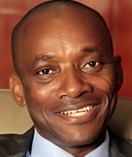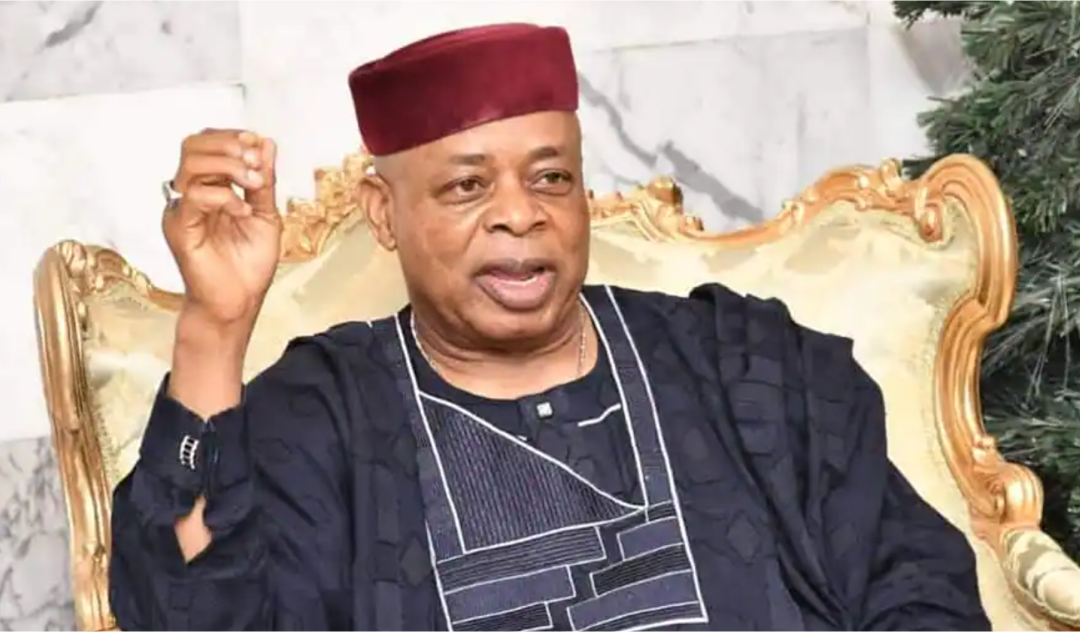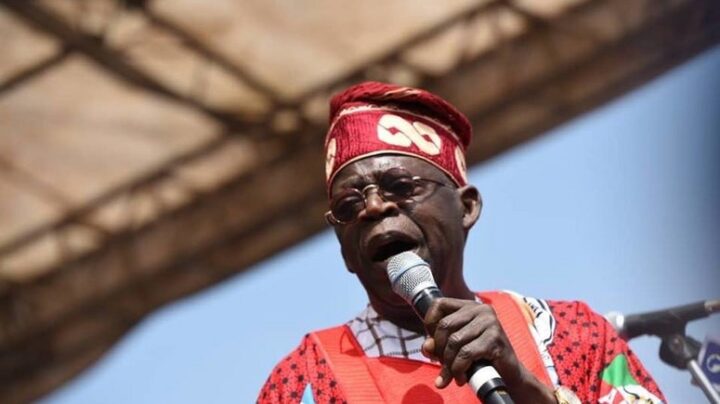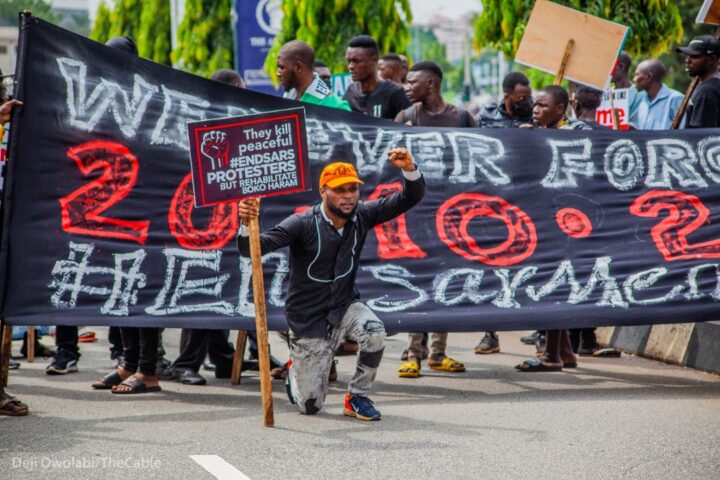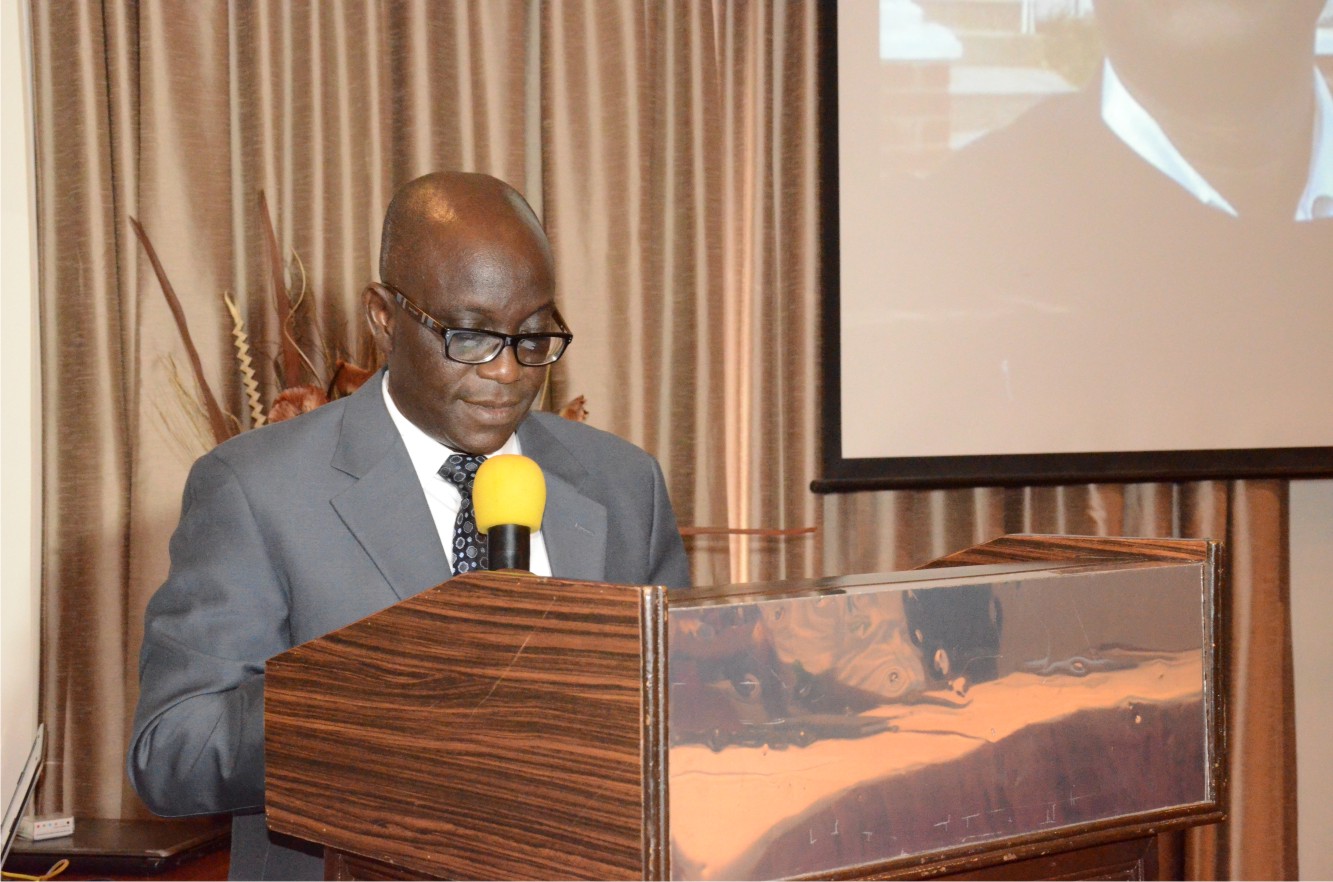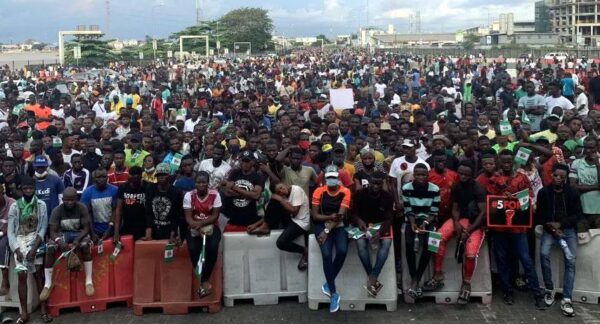We live in the era of cancel culture. It is a time when someone can be literally canceled from history or public acceptance just because of an indiscretion or something perceived as unethical. The proponents of ‘cancel culture’ stylize their lynching as accountability. People have to be forced to be morally responsible for their actions. Opponents of cancel culture liken it to Stalinist tactics to suppress dissent and obliterate inconvenient truth. In spite of the debate, we feel the enormous pressure that social media creates to lynch prominent people when they take an opposing side.
This is what seems to be happening on the issue of Third Term debate. Former Senate President Ken Nnamani is poised to present his book on the events of the failed attempt to amend Nigerian constitution to grant President Obasanjo an extra tenure. He titled his book: Standing Strong. The message is that the leadership of the National Assembly under Senator Ken Nnamani faced overwhelming pressure but refused to give Obasanjo extra time as President and hurt the prospect of democracy in Nigeria. There are many political and economic gains attached to this seduction. But Nnamani refused to give in. And his heroism saved democracy. That is the story Ken Nnamani wants to tell. But some are not allowing him to enjoy the moment on account of what they perceive as his current sin. That sin is allegedly enabling the emergence of Dr Andy Uba, a protégé of President Obasanjo, as APC candidate for Anambra 2021 Governorship Election. The heroic Nnamani is now Mephistopheles who sold his soul to the devil in Faustian legend.
But we need to know the true account of both incidents to understand the real Ken Nnamani so we can decide whether he deserves to be cancelled in the manner suggested by his agonists. I was at the heart of Third Term debacle as Nnamani’s Special Adviser on Research and Strategy. I was to Nnamani what Karl Rove was to President Bush, a special counselor in the US political usage. Nnamani came to the senate presidency after the office was desecrated by corruption allegations and impeachment of its occupants. That created the necessity for a thoroughbred legislator with a clean profile and entrepreneurial mentality to reinvent the Senate. The leadership zeroed on Ken Nnamani, but the party would not have it. Nnamani was perceived as very enlightened and independent-minded to be useful to the swashbuckling duo of President Obasanjo and Chairman Ahmadu Ali. The two preferred Senator Ike Ekweremadu, a political scion of Governor Chimaroke Nnamani, an Obasanjo ally. But senators wanted Nnamani. Nnamani was the only Senator who came to the legislature with a book detailing a clear and coherent legislative agenda. His colleague took note of this and his urbane and cosmopolitan mentality. He was forthright and often took positions against the party hierarchy. They found their man. Nnamani did not betray. He reinvented the Senate to become the most credible and effective branch of government and worked closely with Obasanjo’s reformers to provide a coherent legislative framework for growing the economy and stabilizing the polity. He thrived on collegiality and the capacity to lead a stable and broad coalition for change.
Nnamani did not quite know about the Third Term agenda on time. I recall arguing with him in the early days of the plot. I told him there is a plot to amend the constitution to keep Obasanjo in power. This plot had the blessings of Nigeria’s top corporate leaders and presidential aides. A few in the leadership of the National Assembly were being recruited as foot soldiers. He wasn’t quite convinced that President Obasanjo would travel that part. But once he got to know about it, he steeled himself to defend democracy. He struggled to find a role that is not merely disruptive but constructive and protects the institutional integrity of the legislature. He ended on the concept of legislative due process. The idea is that the Senate President is like a judge who holds the scale of justice. To the judge, protecting due process is more important than the actual outcome of the contest. The procedure is more important than the result. Nnamani wanted to protect legislative due process and ensure legislators as representative of the people truly represent the people’s choice on a critical constitutional question.
Advertisement
Nigerians were worried that the National Assembly would fail this crucial stress test. African legislatures are notorious for lack of independence from the executive and low intellectual capacity for oversight. Nnamani’s senate presidency cured these deficiencies and exemplified the sort of independence that conserved institutional capacity for adaptive work. He called this conception of legislative independence ‘The Third Way’- a model of legislative leadership that is oriented toward cooperation and co-management rather than conflict and competition. This transformational leadership helped the National Assembly to protect democracy and the country at a difficult time.
The Third Term agenda failed largely because of the transparent and courageous leadership of Ken Nnamani. It failed because the National Assembly had a leadership that did not pay lip service to democracy and risked its political career and huge economic benefits to preserve due process. The failure of Third Term is a lesson on the fragility of building the future of democracy solely on the foundations of institutions without considering the human resources to manage the institutions. We have seen enough evidence of the hijack of democratic institutions to achieve undemocratic ends to reinforce the important of focusing on the role of character and competence in protecting human freedom and social stability.
What we are celebrating in Nnamani’s book is that hope that when it matters most, we can find it in ourselves to drum up the courage to do the right thing that needs to be done. It was not easy to do so in 2006. It is not easy today. I remember that Nnamani withstood enormous pressure to end the live telecast of the proceedings of the Senate that put sunshine on the dealing and wheeling that would have suppressed legislative vigilance. That marked the beginning of the tradition of public live telecast of legislative proceedings in the National Assembly. The pressure to compromise was much that I had to write a memo to Nnamani to encourage him to remain firm as he was at the cusp of history. He affirmed to me he would not change the rules to enable passage of the amendment even if a gun stuck to his head. He did not bend. He stood strong and tall and parried Obasanjo’s curve ball over the bar.
Advertisement
Nnamani passed the test of leadership as Senate President in 2005-2007. Many years have gone by since then. He has moved from the Peoples Democratic Party (PDP) to the All-Progressives Congress (APC). Now that he is in the APC, is Nnamani still a defender of democracy or has he sold his soul to the devil such that we should cancel his heroism as Senate President?
Well, in 2006 Nnamani was a politician. In 2021 he is still a politician. He did not defeat Third Term as a truculent and irreverent human rights activist. He defeated Third Term as an intelligent, reform-minded institutional player. Perhaps, his greatest achievement as a leader in 2006 was keeping the Senate united in spite of the storms engineered by President Obasanjo’s foot soldiers during the Third Term debacle. That the National Assembly remained united and stable and went ahead to achieve remarkable legislative milestones like the passage of the Freedom of Information Act and the thwarting of the unlawful removal of Abubakar Atiku as Vice President is a testimony to the quality of collegial leadership of Senator Ken Nnamani.
Collegial leadership comes natural to Ken Nnamani. He believes his responsibility lies with convincing his colleagues to move towards transformation and not necessarily breaking tables and bringing the house down. After the Third Term, in spite of President Obasanjo’s anger at him, he remained a member of the PDP and continued to urge for internal democracy. He with Governor Masari and El-Rufai were the leaders of the PDP Reform which acted sometimes as the Good Governance Group (3G). The group tried to move PDP away from the politics of authoritarianism. I once acted as a Director of Policy for the group. The group mission was subverted when President Jonathan sided with the Governors in the fight over the party. Rotimi Amaechi and other leaders wanted the insurrectionists expelled from the party. The first notable member of the group to exit the PDP was Governor Masari who joined Buhari in APC to run for Governor. Later, Governor El- Rufai left to join APC. Ken Nnamani remained in the party, and furtively tried to nudge the part to the path of internal democracy. After the 2015 election, Nnamani decided to leave the party. He asked for my views. I knew he had got really tired of what was going on in the PDP. We agreed he should leave but keep the doors open to come back when the party amends its ways (It is now a much-improved party). He said he would leave no door open. Typical of his quiet approach, he issued a press statement devoid of vitriols and hell raising. Later, we had to decide whether he should join another party. I counselled against joining the APC. In my view, he could continue to support President Buhari as a statesman, not necessarily as a party man. Nnamani is a politician, not a human rights activist. He chose to join the APC. The jury is still out whether it is a wise decision. I think it he shouldn’t have joined.
Those opposing Nnamani’s canonization point to his current politics in the APC. That politics is now read to mean a pact with the devil. Of course, the hypocrisy of this view is so transparent considering that some of our reputable comrades like Dr. Fayemi and Senator Opeyemi Bamidele are henchmen of that party. Nnamani’s sin is that he did not call a press conference to denounce the fraud that took place in Anambra. Those who push this narrative forget to note that Nigerian party primaries are models of criminal undertakings. Either the results are written at home, or the mock primary holds in a nondescript place. I was a victim of these malevolent dramas when I ventured to contest for the office of Governor under the All Peoples Grand Alliance (APGA). Compatriot Pat Utomi once was still looking for the venue of APC governorship primary in Delta when the results were declared. That is how transparent these primaries are such that we really need to judge politicians on the basis of how they rail against outcomes of these primaries.
Advertisement
In the Anambra case, the outcome of the APC governorship primary surprised only those who are not paying attention to the degeneration of political order in Nigeria or are engrossed in their make-believe about democracy in Nigeria. The man who organized the so-called primary is a young and vibrant governor of Ogun State, Abiodun Dapo. Days after the primary I spoke with Nnamani about the outcome. It was obvious he had grave misgiving about what the team did in Anambra. I tried unsuccessfully to push him to come out with his reservation. But he always said it is irresponsible to openly attack the party when he could work internally to see what could be corrected. I didn’t know how he managed the internal dynamics.
Nnamani is principled in his refusal to speak openly against the institutions where he has leadership responsibility. He will wage the war inside not outside the camp. It does not matter if he is no longer a member of the institution. Since he left the PDP, he has not taken up press wars against that party unlike many who walked away. That is who I know him to be. When the debate about electronic transmission of election raged, he was invited by Arise News to speak on his recommendations as Chairman of the Presidential committee on constitutional and electoral reform. It looked as if those recommendations were being jettisoned by the current legislature. Nnamani did it not consider it proper to openly attack the leadership of the National Assembly on a developing situation when he could exercise influence to nudge them to do the right thing. He preferred to speak to the Senate President and the principal officers than ventilate on television. He asked me to speak for the committee since I was a technical adviser to the committee. Later, when the National Assembly approved the use of electronic transmission for 2023 elections, I thought perhaps Nnamani has exercised institutional leadership.
The point is that the Ken Nnamani I know has not changed much since the heroic outing on Third Term. He didn’t sell his soul to the devil. I don’t think he sold his soul to the devil for the emergence of Dr. Andy Uba as APC governorship candidate of Anambra State. He is not happy that the party did not conduct a credible primary. He would have preferred that the team followed due process no matter who emerged as candidate. But he will not go on air to denounce the Abiodun Dapo committee for rigging the process or the APC leadership for ratifying the outcome or President Buhari for accepting and shaking hands with Dr. Andy Uba.
Ken Nnamani has to carry the burden of his decision to join the APC. He has to bear the brunt of identifying with the likes of Governor Hope Uzodinma who, in the eyes of many in Imo State and the civil society, carries a huge legitimacy problem. But Nnamani is a politician who carries both the ‘ethic of responsibility’ and the ‘ethics of conviction. Max Weber distinguished the two in his work on the vocation of politics. The ethical politician like Ken Nnamani has to know how to combine the two and when to act from a sense of ethic of conviction and when to act more from the ethics of responsibility.
Advertisement
In 2006, the ethics of conviction was more manifest in his leadership. Today, unfortunately, some would say, the ethics of responsibility is more manifest in his leadership. But nothing that has happened suggests that he has sold his soul to the devil. Yes, he may have missed opportunities to lead on public issues as many of us who admired his courage in the Third Terms would have wished. But nothing suggests he has a pact with the devil. Nothing suggests he has become a shameless corrupt politician like many I know across the country. If I see evidence of gross corruption, apart from normal political caution or traditional institutional deference of typical politicians, in the Anambra saga, I will publicly recant this piece.
Advertisement
Views expressed by contributors are strictly personal and not of TheCable.
Add a comment
